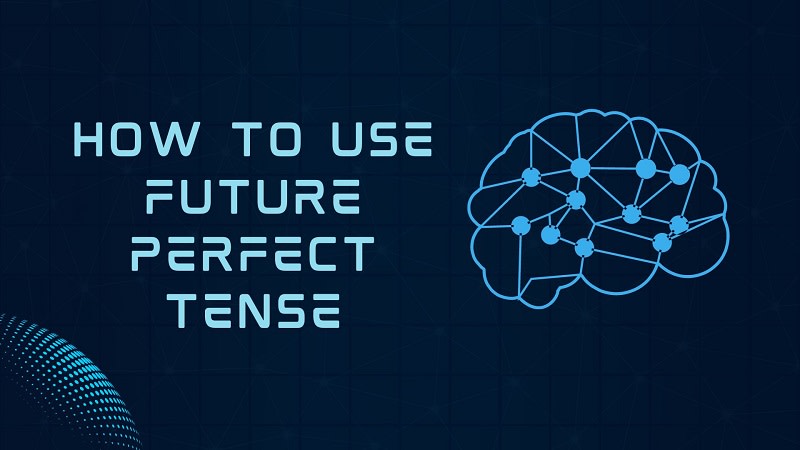When studying English grammar, the Future Perfect Tense is an important tense that learners need to understand clearly to avoid confusion with other future tenses. To use it accurately, you must know the structure, time indicators, and when this tense is appropriate. Let IDP guide you through it in the article below.
1. What Is the Future Perfect Tense?
The Future Perfect Tense is used to describe an action or event that will be completed before a specific point in the future. It can also indicate that one action will be completed before another future action begins.
Examples of Future Perfect Tense:
Your career will have moved from an establishment stage into a maintenance stage.
Millions of people will have eaten food contaminated with small amounts of dioxin.
Wolstenholme will have played the course many times when the tournament starts tomorrow.
2. Future Perfect Tense Structure
Just like other tenses, the Future Perfect Tense has three forms: affirmative, negative, and interrogative.
Sentence Type | Structure | Example |
Affirmative | S + will + have + V3/past participle | By the time you arrive, I will have finished my work. |
Negative | S + will not + have + V3/pp | It will not have escaped your notice that there have been some major changes in the company. |
Interrogative (Yes/No) | Will + S + have + V3/pp? | Will James have saved enough money by the end of next month? |
Interrogative (WH-) | WH- + will + S + have + V3/pp? | How much will you have spent on your clothes by the end of this year? |
3. Time Indicators of the Future Perfect Tense
Look for time phrases in the sentence to recognize the Future Perfect Tense:
Time Indicator | Example |
|---|---|
By + future time (by 8 a.m., by tomorrow, by next month, etc.) | I will have finished my presentation by 9 AM. |
By the time + present simple clause | By the time I am 18 years old, I will have begun studying at university. |
By the end of + time period | I will have read all the chapters of the book by the end of the week. |
Before + future time/event | Before the party starts, I will have prepared all the food. |
Time + from now (e.g., two weeks from now) | Two weeks from now, we will have reached our destination. |
4. How to Use the Future Perfect Tense

Usage | Example |
|---|---|
To describe an action that will be completed before a certain point in the future | I will have finished reading the book by the end of this term. |
To describe an action completed before another future action | Selena will have finished the report by the time you call her. |
Note:
Use Future Perfect for the action that happens first, and Present Simple for the action that follows.
5. Future Perfect Tense Exercises with Answers
Exercise 1: Complete the sentences using the Future Perfect Tense.
Jimmy / study / Chinese / before / move / China.
My kids / play / soccer / yard / their friends.
Hannah / take part / the dance competition ?
Henry / finish / project / by the end / next year.
My grandmother / not / prepare / breakfast / by the time / we come.
Before / they / arrive / Rosie / read ‘Doraemon’.
Answers:
Jimmy will have studied Chinese before he moves to China.
My kids will have played soccer in the yard with their friends.
Will Hannah have taken part in the dance competition?
Henry will have finished his project by the end of next year.
My grandmother will not have prepared breakfast by the time we come.
Before they arrive, Rosie will have read ‘Doraemon’.
Exercise 2: Fill in the blanks with the correct Future Perfect form.
Anne (to repair) __________ her bike next week.
We (to do) __________ the washing by 8 o'clock.
She (to visit) __________ Paris by the end of next year.
I (to finish) __________ this by 6 o'clock.
Sam (to leave) __________ by next week.
She (to discuss) __________ this with her mother tonight.
The police (to arrest) __________ the driver.
They (to write) __________ their essay by tomorrow.
Paolo (to manage) __________ the teams.
If we can do that, we (to fulfill) __________ our mission.
Answers:
will have repaired
shall have done
will have visited
shall have finished
will have left
will have discussed
will have arrested
will have written
will have managed
shall have fulfilled
Master the Future Perfect Tense with IDP
Grammar plays a crucial role in the IELTS exam. Understanding how to use the Future Perfect Tense correctly will help you feel confident in every test section. If you're still unsure about some grammar basics, you can explore helpful resources from IDP, including IELTS workshops, personalized prep courses, and practice tests designed to suit your current level.
At IDP, candidates can take the computer-delivered IELTS test with flexible weekly schedules. You can also register for a free IELTS mock test to get familiar with the test format and improve your time management.
And when you're ready, register for your IELTS test with IDP today!
